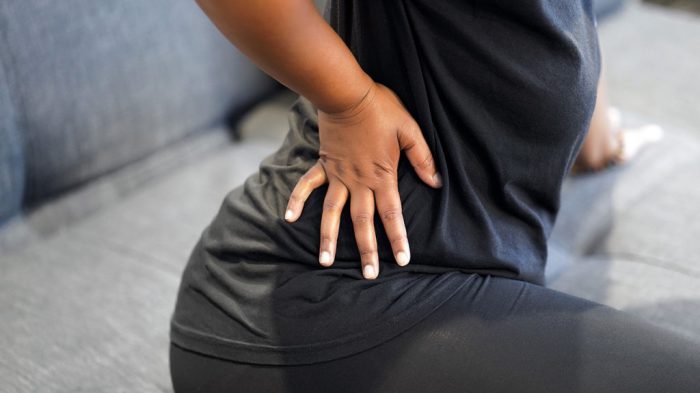A new study has found that cannabis may improve the mood of people who experience chronic pain from sickle cell disease.
New research suggests that cannabis may help improve the mood of people with chronic pain from sickle cell disease. This proof of principle study also found that cannabis was a relatively safe intervention.
The research, published in the journal JAMA Network Open, paves the way for future studies to verify the initial findings and expand the investigation on cannabis-based interventions on chronic pain.
According to the Centers for Disease Control and Prevention (CDC), sickle cell disease is a type of red blood cell disorder that causes the cells to become misshapen and look similar to the crescent shape of a sickle.
Sickle red blood cells die sooner than normal cells, which means less oxygen is transported throughout a person’s body. Furthermore, sickle cells tend to clog smaller blood vessels, resulting in acute or chronic pain, infection, and other serious cardiovascular issues.
According to the CDC, treatments for mild pain from sickle cell disease include over-the-counter analgesics, such as ibuprofen and aspirin.
For people in more severe pain from this condition, doctors can often prescribe daily opioid medications, such as morphine. However, opioids come with various side effects and risks, including addiction and overdose.
Consequently, it is important to find other ways of managing the pain associated with sickle cell disease.
Addressing a research gap
In the United States, cannabis is increasingly popular as an analgesic. It is legal for medicinal use in 33 states, as well as the District of Columbia, Guam, Puerto Rico, and the U.S. Virgin Islands.
Cannabis use as an analgesic has been found to have the best evidence base compared with its use for other interventions. However, the authors of this study note that there are relatively few human studies that explore the use of cannabis as a treatment for pain from chronic health conditions.
To address this issue, the authors developed a double-blind, placebo-controlled, randomized proof of principle study. Their aim was to test the hypothesis that cannabis can effectively relieve chronic pain in adults with sickle cell disease, compared with placebo.
The study enrolled participants who had sickle cell disease and were receiving an opioid analgesic to manage their pain.
Participants were also required to have prior experience of smoking cannabis to ensure that they would be able to inhale the medication and would recognize its effects. However, people currently using cannabis were asked to discontinue their use 1 week before the trial began.
However, the team excluded those who declared themselves to have serious health issues or substance use disorders.
This resulted in a study group of 27 participants, of whom 23 completed the full trial. The researchers included these individuals in the analysis of the results.
During the trial, participants made two 5-day trips to an inpatient research center that were at least 30 days apart. They inhaled either vaporized cannabis or a vaporized placebo three times a day.
During this period, the researchers assessed participants’ pain levels and the interference of pain in a range of daily activities and mood. They also monitored the side effects.
Reducing the effect of pain on mood
The researchers found that inhaled, vaporized cannabis did not significantly improve the intensity of participants’ experience of pain compared with a placebo.
However, they observed that when participants inhaled vaporized cannabis, the pain interfered less with the participants’ mood.
Finally, cannabis use did not have any significant adverse side effects compared with the placebo.
According to Dr. Kalpna Gupta, Professor of Medicine at the University of California Irvine’s Center for the Study of Cannabis and co-lead author of the study:
“These trial results show that vaporized cannabis appears to be generally safe. They also suggest that sickle cell patients may be able to mitigate their pain with cannabis — and that cannabis might help society address the public health crisis related to opioids. Of course, we still need larger studies with more participants to give us a better picture of how cannabis could benefit people with chronic pain.”
This research does have limitations. As a proof of principle study, it only had a small number of participants, meaning that larger studies are necessary to verify its findings.
Furthermore, aside from the short treatment duration, the participants took the vaporized cannabis three times a day during the study. This might not reflect how people typically use medical cannabis to manage their pain.
However, the research findings show promise for the development of new treatments to manage chronic pain.














